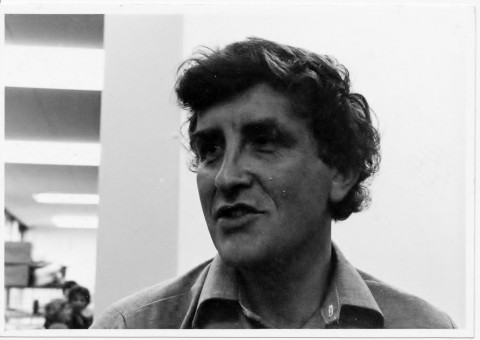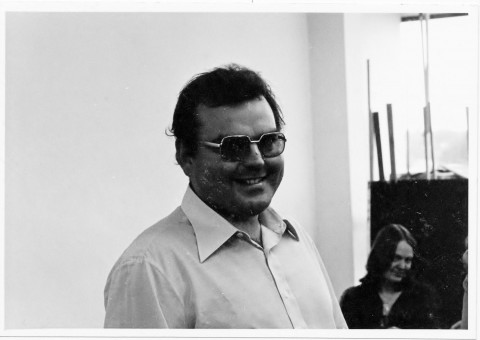Philip was a producer who gave a voice to people who seldom appeared on television. His films had a similar style to the ‘Radio Ballads’ produced in Birmingham by Charles Parker. They mixed actuality with specially commissioned music to tell the life stories of people from all sections of society. Philip was a great interviewer and was able to put interviewees at ease and talk at length.
Philip frequently had a high shooting ratio to achieve the highest standard of documentary production. He sometimes ran over budget before his films were finished. This caused some conflict with BBC management. However he always seemed to find the money to complete his films. In 1977 he produced ‘Pure Radio’. This film was about the Radio Features Department and Charles Parker. John Pierce from Audio Unit had worked on the ‘Radio Ballads’. He took part in this drama documentary working again with Charles Parker. The film editor was John Bland.
I remember working on ‘Gone for a Soldier’. A large group of World War 2 veterans told stories of their war time experiences. This was covered by 2 film cameras and 2 microphone booms. The only time filming stopped was when the audio tape ran out. The sound recordist was Dennis Cartwright from BBC Manchester. I can’t remember the rest of the crew. The film editor, Greg Miller spent many months on this production. It was broadcast in 1980 as two 50 minute films shown on the same night. This film was very controversial and generated a strong reaction in the media and the establishment. Questions were asked in Parliament as it showed the military in a very poor light. Philip was driven by a strong socialist political belief and was on the side of the “underdog”. The film’s main theme was the poor treatment of soldiers by the senior military. Specially commissioned music was used to illustrate the lives of soldiers throughout history to contemporary times. This was Philip’s finest film and much of it is still relevant today.
At times Philip could be a little “difficult” and did not appreciate my comments about his tape recording skills. His PA Elizabeth Seaborne called into the transfer suite with tapes for transfer to SEPMAG. It was evident they had not recorded by a professional sound recordist. My report listed many technical faults with these tapes. I stamped the tapes “Not for TX”. I soon heard Philip was rather annoyed by my comments. A little later Elizabeth phoned to tell me Philip was coming to see me. I was very apprehensive about telling a senior producer that his tapes were not broadcast quality. Philip came in looking quite annoyed but after some discussion we came to a mutual understanding.
Philip had a policy of keeping all material from his films after broadcast. A storage area in Pebble Mill’s basement was full of film negatives, tapes and paperwork going back many years. I hope this collection is now in safe storage.
Philip made many films and I was fortunate to have a very minor role in the last few. These films would never be made today due to cost and the long production times. Philip is a major figure in the documentary movement but now seems totally forgotten by the BBC. A Donnellan season on BBC Four would be a fitting tribute to this great producer. But the BBC seems intent on never repeating any of his work.
Peter Poole


A very interesting and illuminating post.
The optimism about Donnellan’s archive is sadly not supported by reality.
While his approach to preservation and circulation meant that copies of his films are in circulation (in spite of the lack of attention afforded them by the BBC), Donnellan’s archive is held in the Birmingham City Archives but is in urgent need of attention.
Readers of this blog might be interested in the Archive Report produced by Dr Ieuan Franklin and available on the Films of Philip Donnellan Website:
http://philipdonnellan.posterous.com/the-archive-report
I enjoyed this post very much Peter. I quite agree that BBC4 should put out a season of Donnellan’s films, I’m sure they would go down very well on that channel, especially with all the films about shipbuilding and traditional industries.
Many of the 16mm films in the collection referred to are deteroriating due to what’s called ‘vinegar syndrome’ and need copying. Also it is likely to be the case that some of the material exists elsewhere or isn’t worthy of being kept. What we now need to do is view some of the material to fully assess it! The collection of papers and research notes is certainly of great interest.
Thanks for keeping the memory of Philip’s work alive,
Ieuan.
Hi Ieuan
I read your report on the state of the Donnellan Archive with interest – a real pity that some of the films are badly deteriorating! I’d be really interested to look at the production files and get a sense of if/how production methods have changed since the 1960s.
Best wishes
Vanessa